
This article is more than
3 year oldChina’s continuing “glaring failure” to condemn Russia for its invasion of Ukraine comes amid fears it could offer the country a financial lifeline after the US, Europe and Australia imposed hard-hitting sanctions.
Russian banks have flagged the possibility of issuing cards that use a Chinese payment system after Visa, MasterCard and American Express said they were cutting their services, alongside the West’s serious economic bans.
These include an unexpected move by the US to freeze the assets of the Russian central bank in Western jurisdictions, but also cutting off most Russian banks access to the SWIFT system, which processes trillions of dollars’ worth of transactions every day.
China has refused to impose the same sanctions arguing that they threaten a political resolution to the conflict,
On Monday, Chinese Foreign Minister Wang Yi described Russia as the country’s “most important strategic partner”, adding their alliance was “one of the most crucial bilateral relationships in the world”.
“No matter how perilous the international landscape, we will maintain our strategic focus and promote the development of a comprehensive China-Russia partnership in the new era,” Mr Wang said in a news conference.
“The friendship between the two peoples is iron clad.”
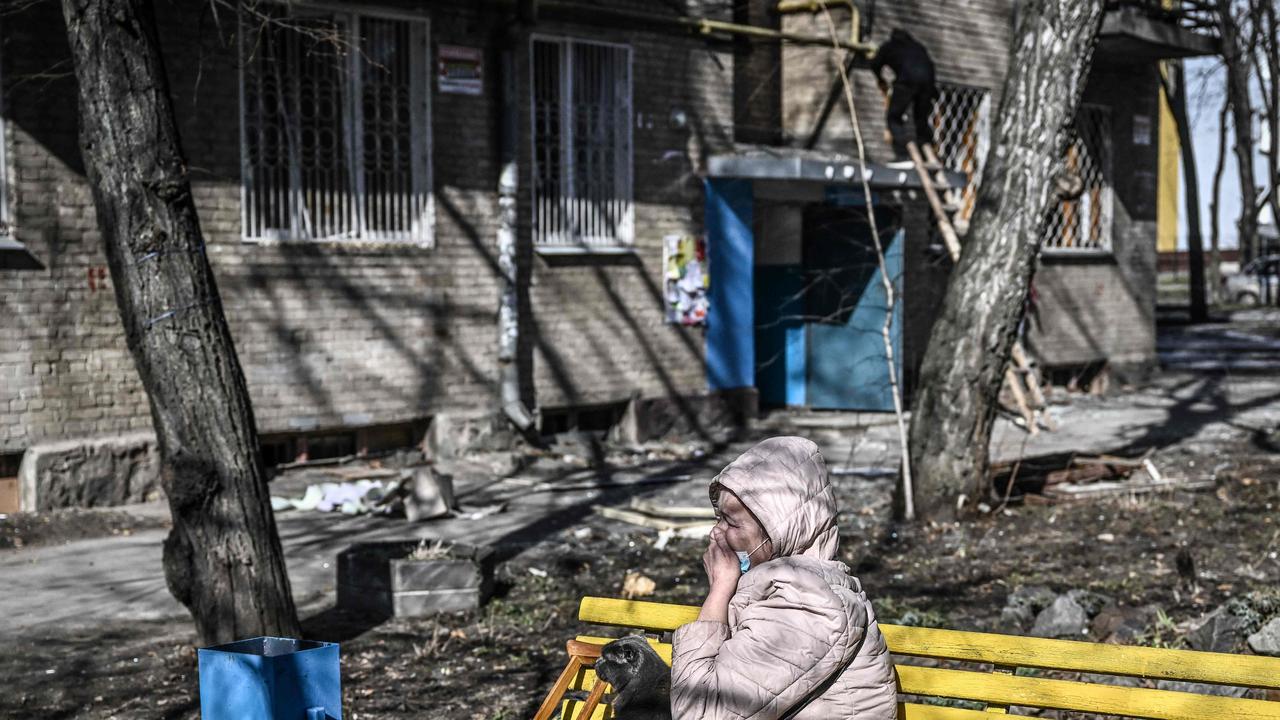
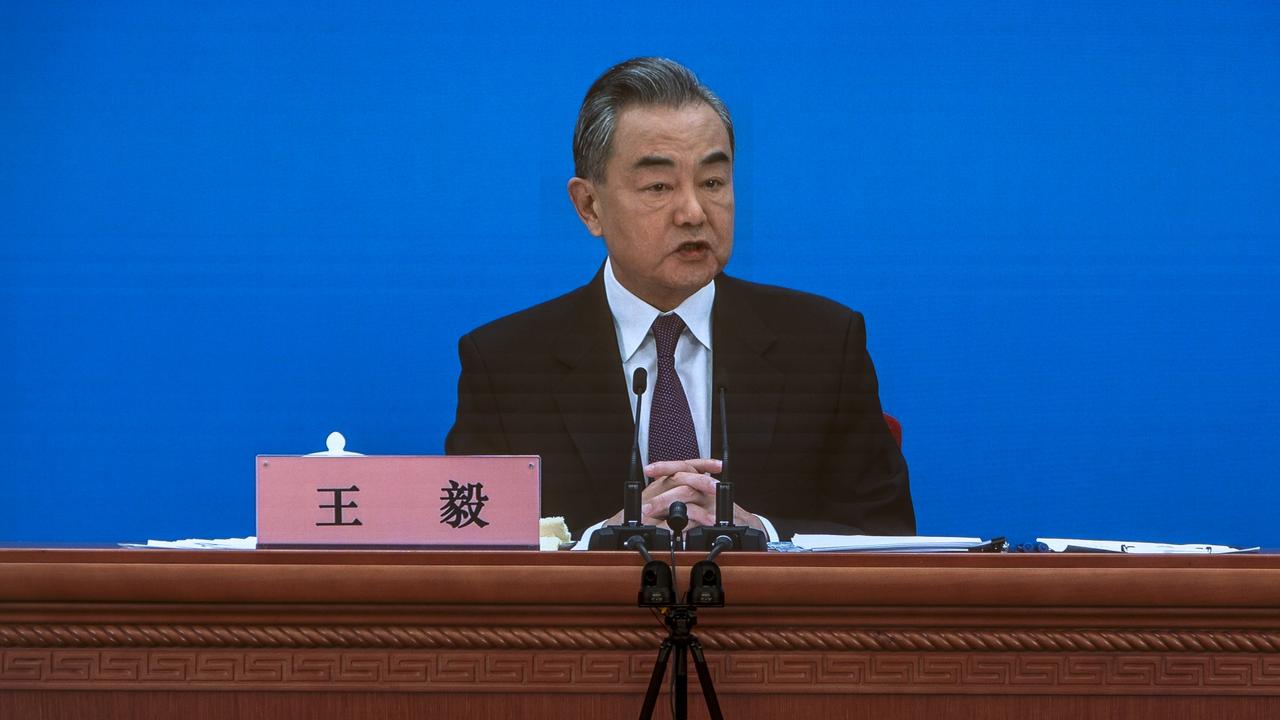
Michael Shoebridge, director of defence, strategy and national security at the Australian Strategic Policy Institute, said Beijing was working on trying to maintain the optics of diplomacy but China’s President Xi Jinping’s vast actions showed a different situation.
In places like the UN Security Council and UN General Assembly – Beijing’s diplomats are using “soothing words” about resolving things by negotiation and peaceful means, he said.
“But without in any way condemning or even criticising Russia for its brutal war against the Ukrainian people,” he told news.com.au.
“Abstaining from votes rather than voting with Russia or against Russia is the way Beijing is trying to avoid criticism.”
But there is no doubt that China’s President Xi Jinping is supporting Moscow and its leader Vladimir Putin, Mr Shoebridge said.
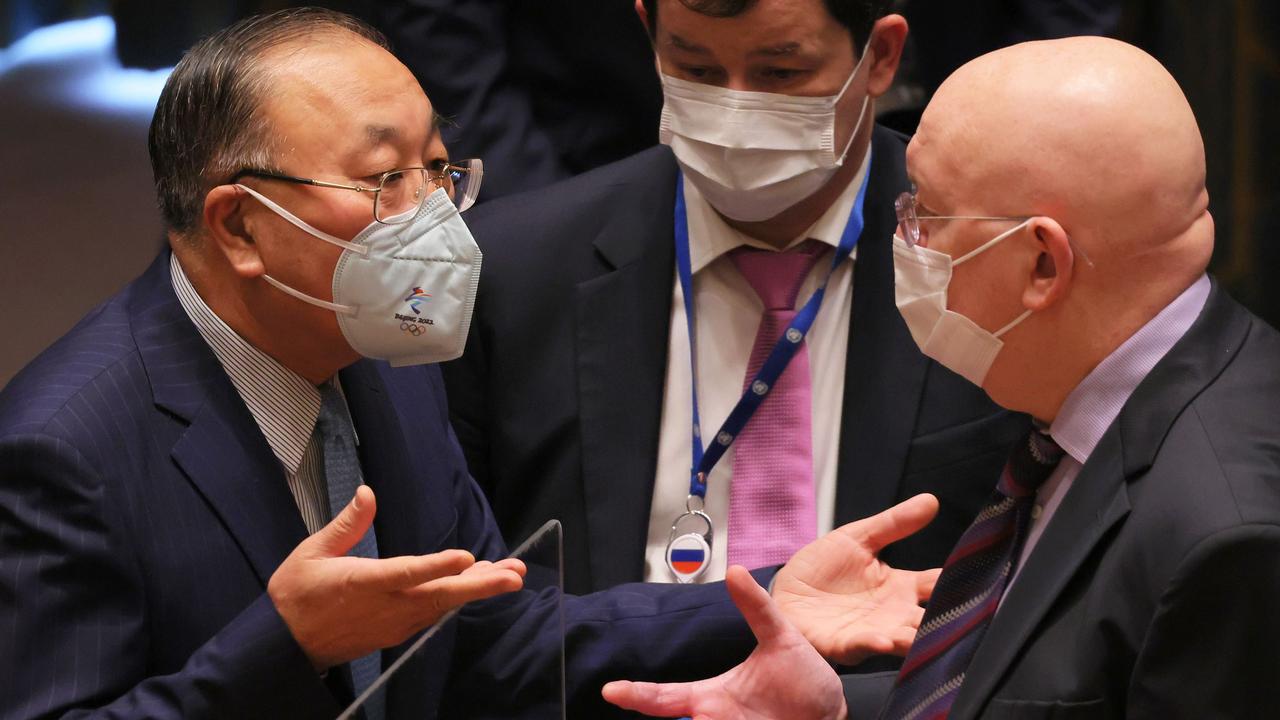
Chillingly, Beijing’s powerful censors are not censoring or stopping viral circulation of violently pro-Russian material on China’s internet, which is one indicator of where Beijing sees its interests as lying, Mr Shoebridge warned.
“This is extraordinary, given the heavy censorship around the Winter Olympics and even tennis star Peng Shuai,” he added.
“The approach of the censors must be in accordance with Chinese government leadership direction.”
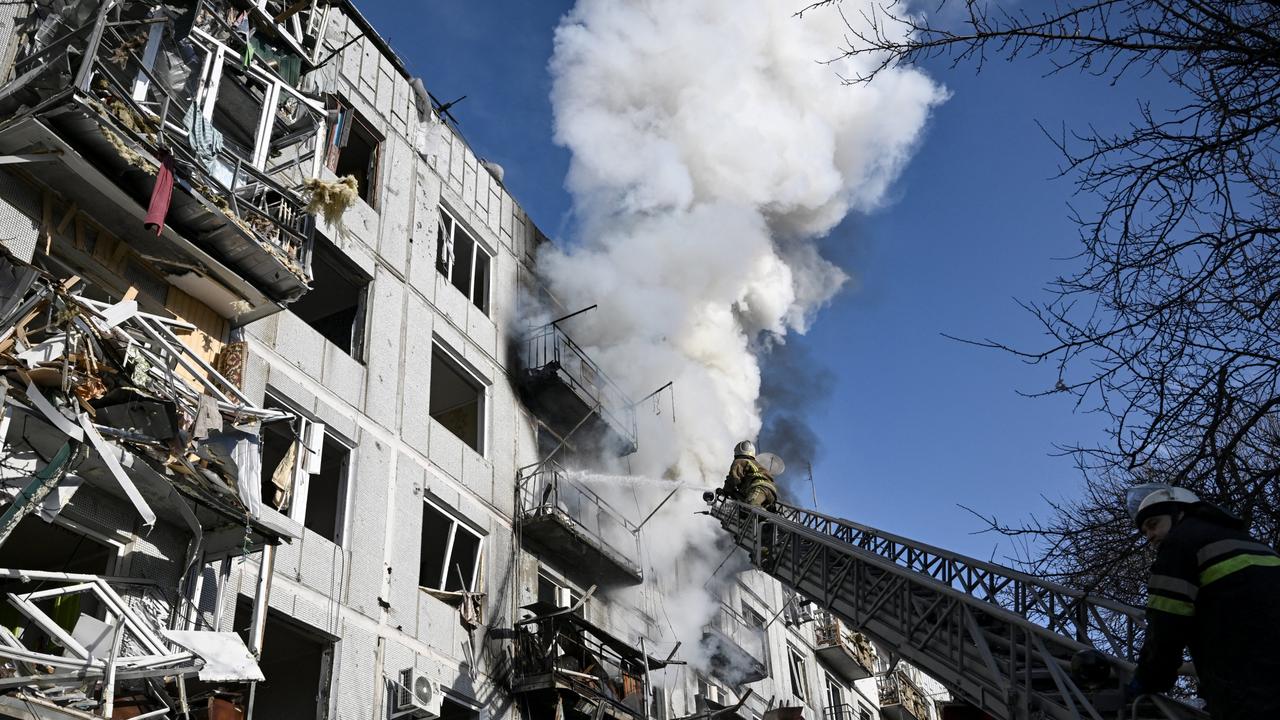
While the international community were putting massive sanctions in place against Russia once Putin started his war, Beijing chose that moment to tell the world that previous restrictions on buying Russian wheat were lifted, and purchases would increas.
“As the civilian deaths and widespread destruction in Ukraine worsened as Putin’s forces continued their grinding campaign to capture territory and cities, in a press conference, China’s foreign Minister Wang told us that China-Russia relations were ‘rock solid’ and opportunities for future co-operation were ‘very vast’,” Mr Shoebridge added.
“That is a long way from Beijing acting on its purported key principle of international relations that is about respecting state sovereignty – and settling disputes peacefully.
“Scott Morrison and other world leaders’’ call for Xi to use his partnership with Putin to end the war has already had its answer via Foreign Minister Wang.”

Russian banks Sberbank and Tinkoff Bank announced they were considering the possibility of payment cards powered by China’s UnionPay system as a way to ensure transactions can be completed outside the country.
But Chinese banks and companies are mixed on what to do right now, according to Mr Shoebridge.
Some that are heavily integrated into global financial markets are stopping trade with Russian companies and government entities, otherwise they would be caught up in “secondary sanctions” as a result of the broad international bans against Russia, he said.
“Others – like Huawei and Union Pay – have been reported as working to assist Russian partners cope with the effects of international sanctions. Again, this cannot be done without the backing of the government in Beijing,” he noted.
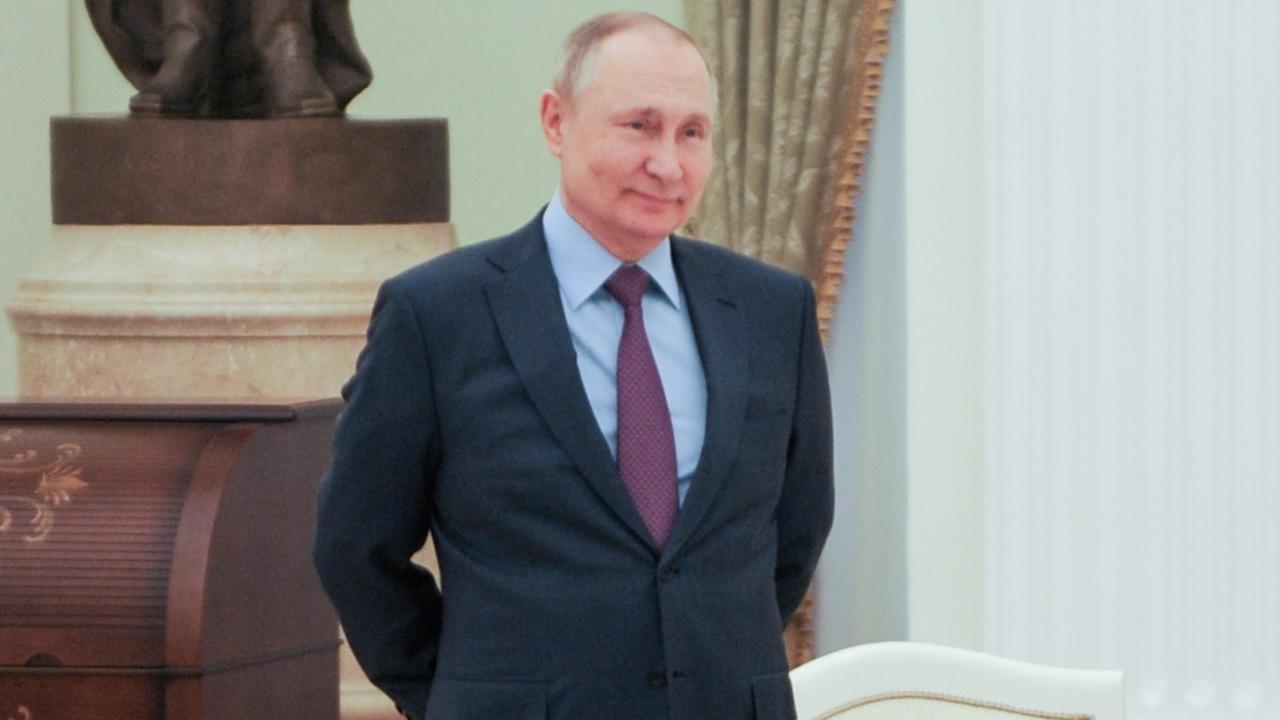
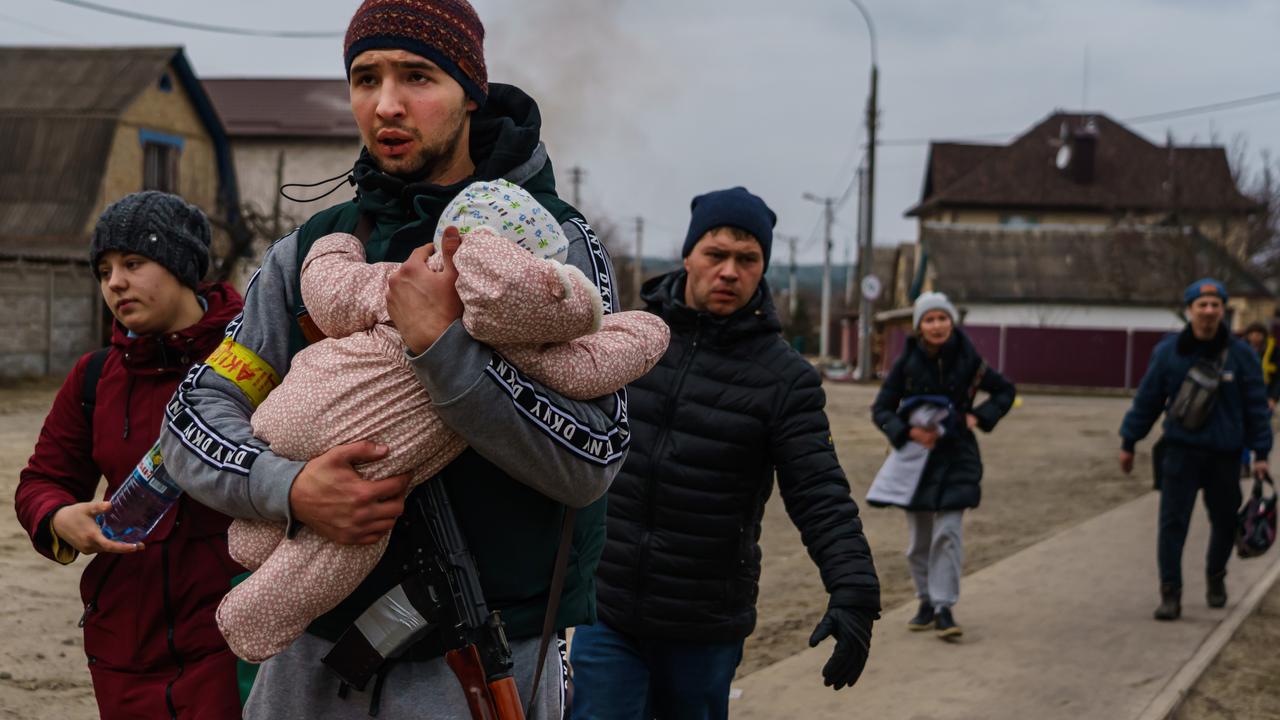
China no doubts sees risk in being tied too closely to Putin’s war, but the statements from high officials like Wang and “glaring failure” to condemn Russia’s aggressive war are making it very clear where Beijing is putting the weight of its effort, Mr Shoebridge said.
“And that’s to support Putin diplomatically, politically and economically,” he added.
Its part of President Xi strategy for the Chinese economy, which is to make itself less dependent on the wider global economy and instead have its trading partners rely more heavily on it.
“Russia’s economy is broadly complementary to China’s – Russia is its largest fossil fuel supplier and also exports other resources that power China’s economy – wood, copper and ores,” he explained.
“International sanctions open the opportunity to deepen Russia’s dependence on Chinas a single market, and for China to use Russian supplies to reduce its dependence on other suppliers.
“And the fact that US and other western tech companies are ending their connections to Russia because of the war gives China’s big tech companies are more open, less competitive market for their digital platforms and services in Russia.
“This is an acceleration of the ‘economic decoupling’ we have started seeing with Covid and China.”